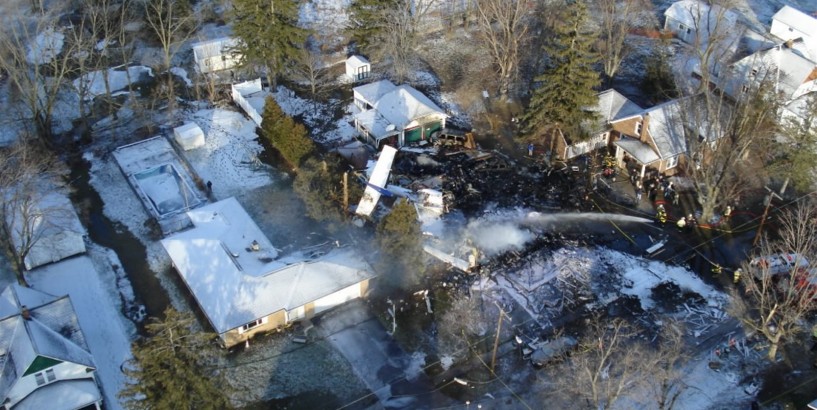Given the fierce industry and government resistance to the flight safety law passed in 2010, it should come as no surprise that the last piece of the puzzle has yet to be put in place.
Nor should anyone be shocked at the frustration of those who, over the past 10 years, have advocated for this necessary and effective law.
Rep. Brian Higgins led two dozen House members in an effort to press the transportation secretary and Federal Aviation Administration to finish the job by building a pilot records database that would prevent airlines from inadvertently hiring bad pilots.
The FAA has said it plans to complete regulations for the database by mid-September. That’s not good enough. As Higgins and Karen Eckert, one of the leading members of the Families of Continental Flight 3407, observed, the target date is meaningless given the agency’s dubious practice of pushing back such target dates. It’s time to get this done.
The public should not stand for further delays. Emails, tweets, old-fashioned snail-mail letters should flood the offices of Transportation Secretary Elaine Chao and Daniel Elwell, acting administrator of the FAA, noting that they recently assured the public that the Trump administration will not attempt to weaken the safety law’s critical training requirements.
The Families of Continental Flight 3407 know all too well what happens when an incompetent pilot gets behind the controls. That plane crashed the night of Feb. 12, 2009. It was later learned that Capt. Marvin Renslow took the exact wrong actions during a winter-weather stall, causing the Bombardier Dash 8-Q400 he piloted from Newark to plummet into a house. Moreover, investigators discovered that Renslow was poorly trained and had failed numerous tasks intended to measure his skill. Yet, he was allowed to fly passengers.
The list of preventable errors was stomach-turning: Company officials knew about Renslow’s previous failures; Renslow had not trained on a safety system for that airplane; in-flight protocols were violated; and copilot Rebecca Shaw was sleep-deprived and possibly ill prior to the flight.
The pilot database would help to ensure that airlines know if a prospective pilot had failed safety tests, as Renslow had.
Given the numerous revelations in the aftermath of the crash, everyone who flies – or knows someone who flies – should have been wholeheartedly in favor of the safety law pushed by the Families of Continental Flight 3407.
The industry also should have been in favor of the reforms. It was not.
Instead, it has fought mandated changes, specifically an increase to 1,500 hours in the minimum number of pilot and copilot training time before flying for a commercial airline. The often-repeated objection centers on the supposed inability to staff pilots as a result of the higher standards.
The excuse is just that: an excuse. Airlines experiencing difficulty finding pilots should offer better incentives, starting with pay. No passenger should ever board a plane wondering whether the pilot is well trained and capable of navigating through bad weather or unanticipated events.
Those who lost loved ones in Flight 3407’s horrible crash in Clarence 10 years ago have selflessly and continuously embarked on a mission to improve safety in the skies and on the ground. One man was killed in his own home on that fateful night.
The group has had strong support from Senate Minority Leader Charles E. Schumer, D-N.Y., who was instrumental in shepherding the new requirements into law. As recently reported, every other Western New York member of the House signed the letter calling for the completion of the pilot records database.
Now it is incumbent upon the transportation secretary and FAA to get it done – right away. There can be no excuses left for any airline to hire a pilot not fit to fly.









